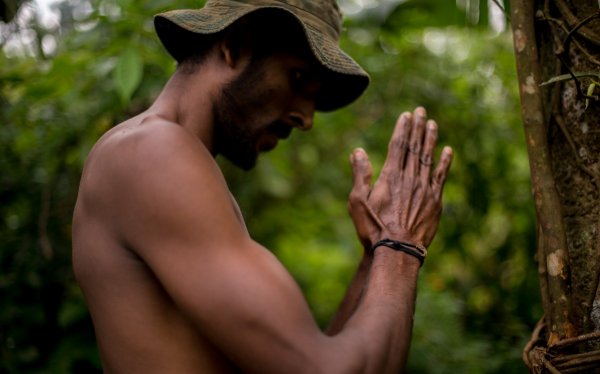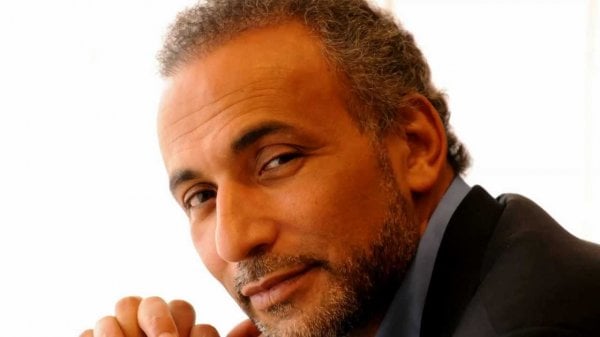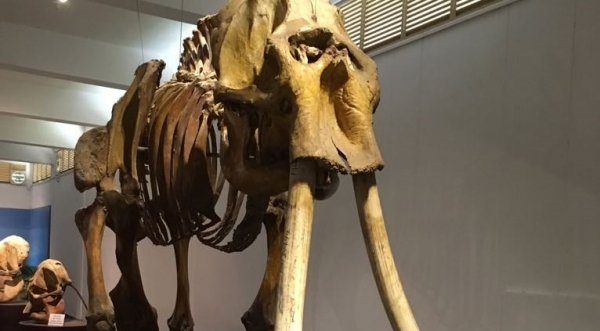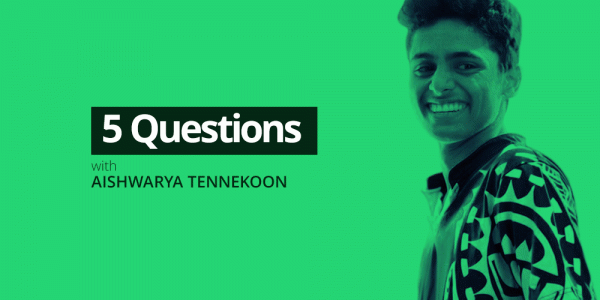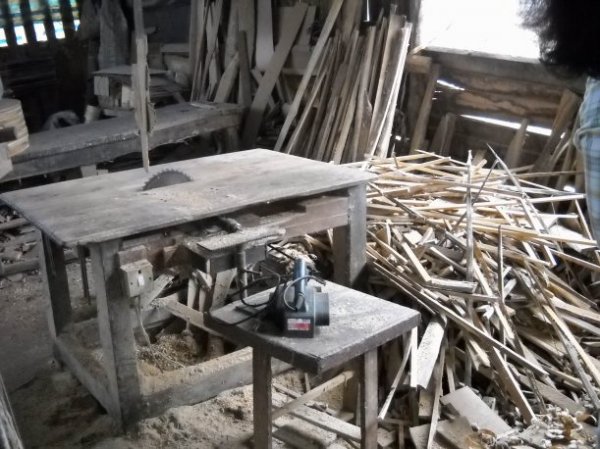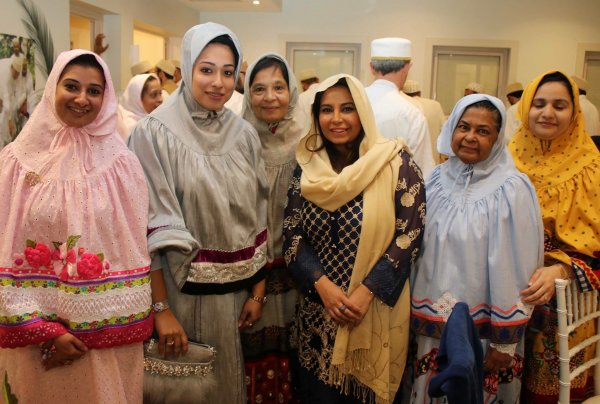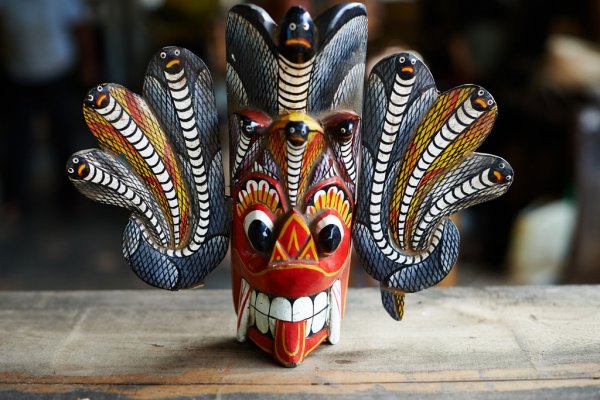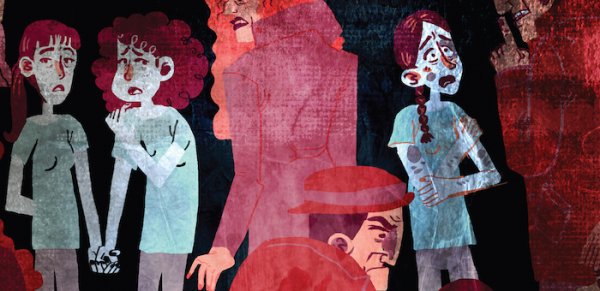
The Hindu festival of lights, also known as Deepawali or Diwali, usually takes place late October or early November. It falls on the month of Karthikai (which, according to the Hindu calendar, is somewhere between October and November). We headed to the city of Nawalapitiya in the hill country to find out how the festival was celebrated away from Colombo.
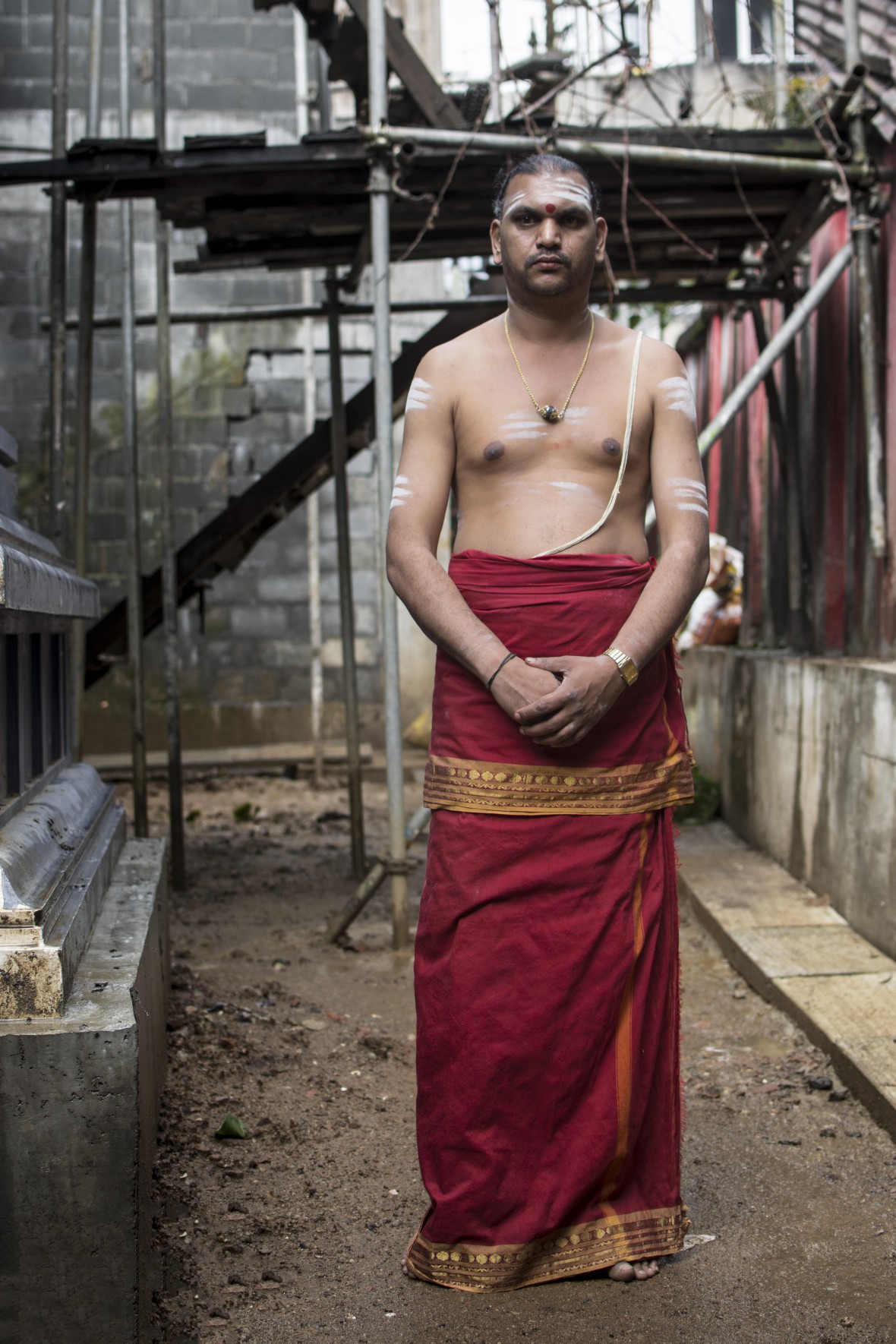
Brahmin – Siva Sri K. Sudaharan Dayalan Kurukkal
I am the chief priest of the kovil. I joined when I was 17, and have been here for 20 years. These white stripes are called “viboodhi”—made from burning cow dung. The necklace is made up of the Rudraksha nut produced by an evergreen that grows at the foothills of the Himalayas. We wear it to symbolise Lord Shiva, to be respectable to the gods who reside within temple premises.

All hindus celebrate Diwali, but it’s done on a grander scale in North India. Important festivals for Tamils would include the Tamil New Year and Thai Pongal Day.
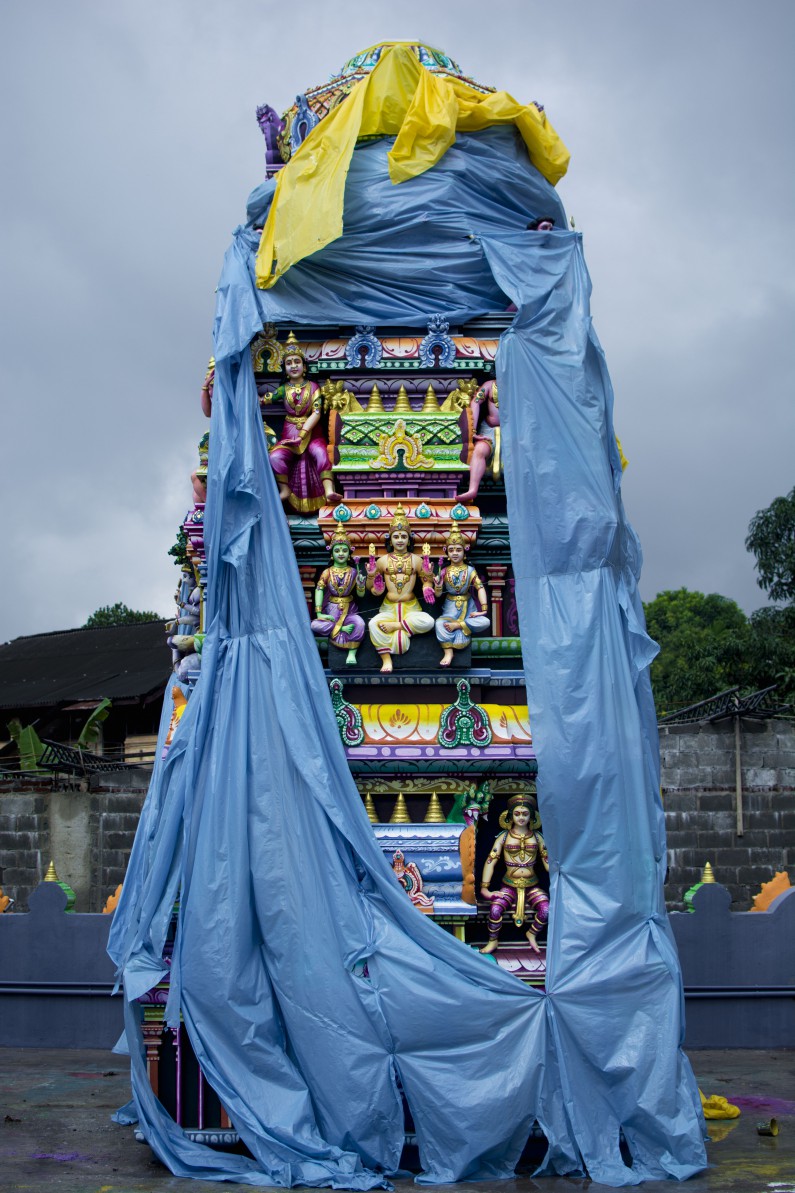
Part of the renovation being done to the kovil gopuram
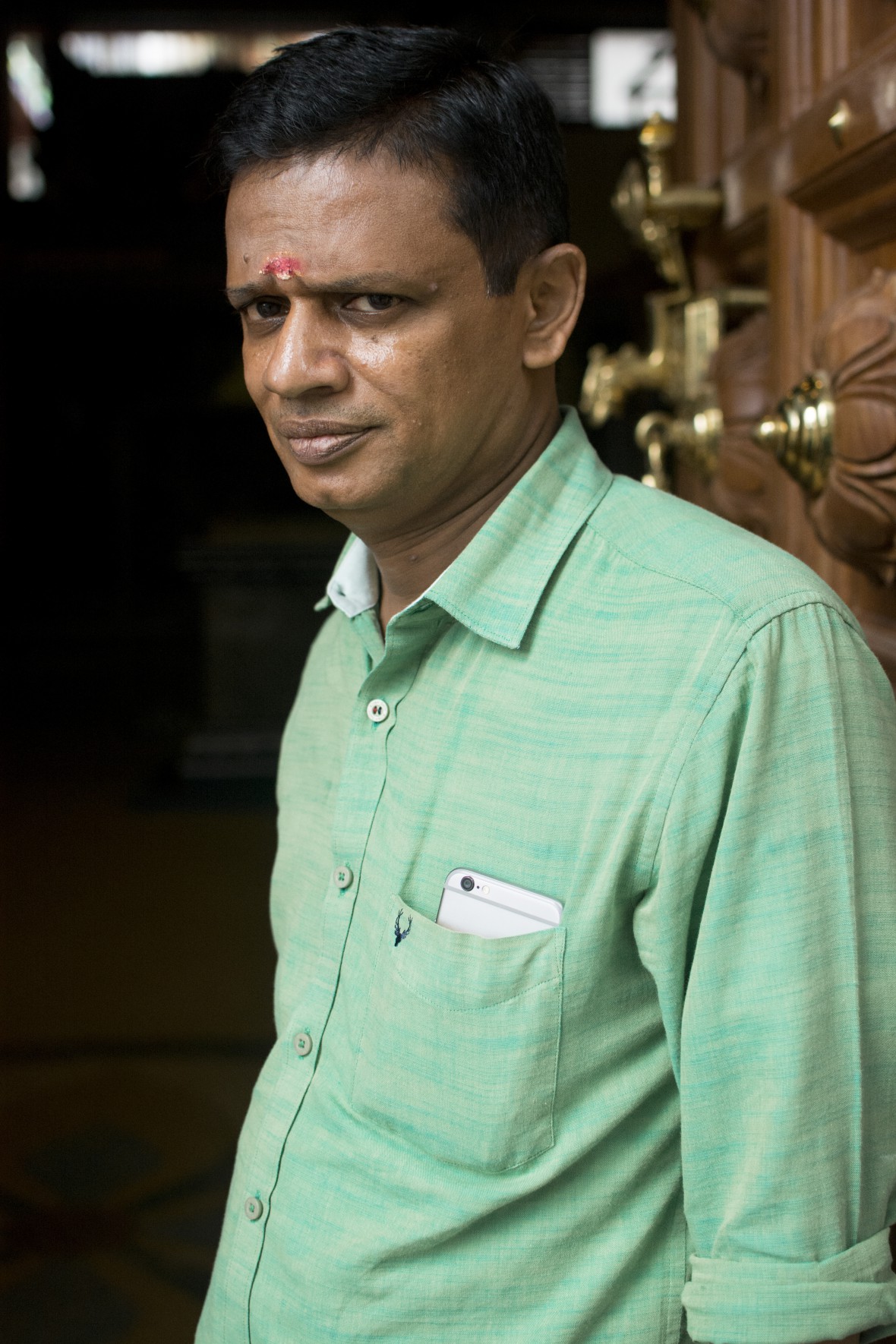
Sri Kanthan – trustee of the kovil for the past four years.
I live in Kandy, but [I am] originally from Nawalapitiya.
Diwali is about how God destroyed bad/evil spirits, [and] gave freedom to devotees, this is the day that we celebrate.
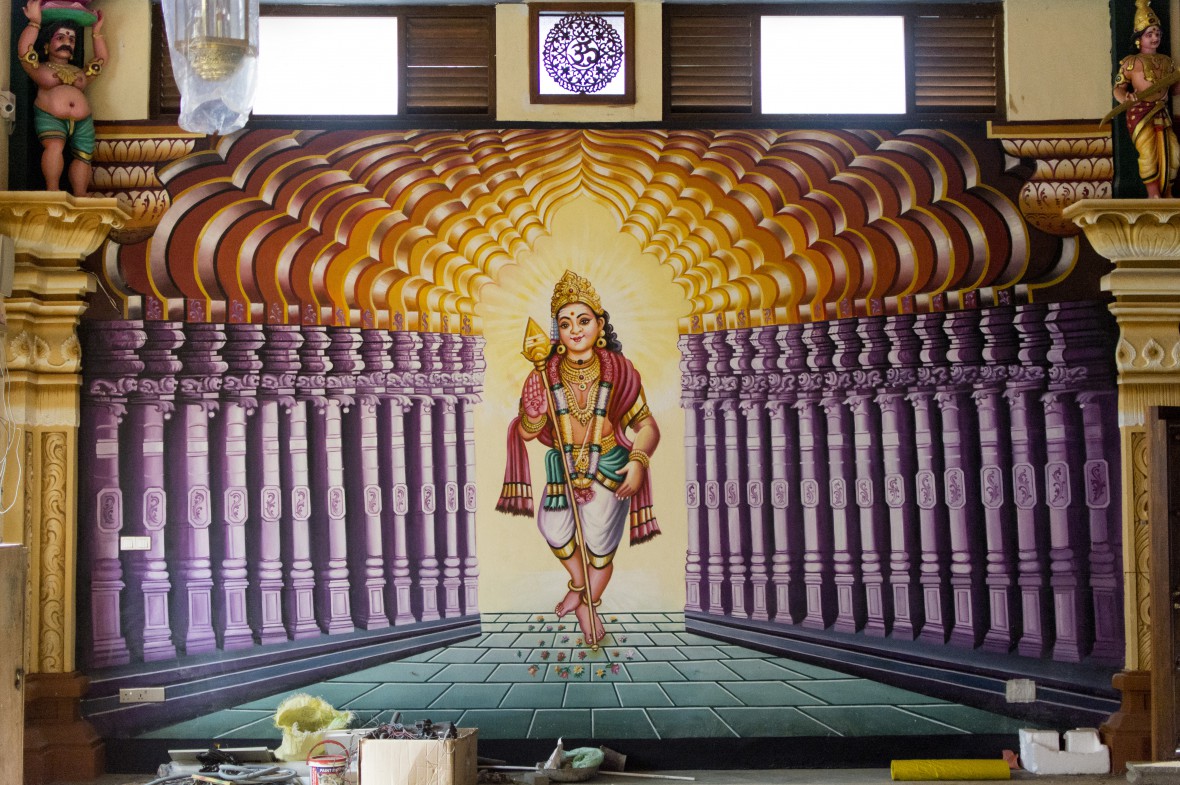
Sri Kanthan says one can interpret this in many ways; some people say it is the demon that was actually killed, others say that every man has evil inside himself, and this is supposed to be destroyed on this day. Man has many bad qualities and on that day (the day Diwali celebrates) he killed them.

In the North East, Hindus worship and thank God in a traditional manner,sharing sweets with one another, and abstaining from meat and alcohol.
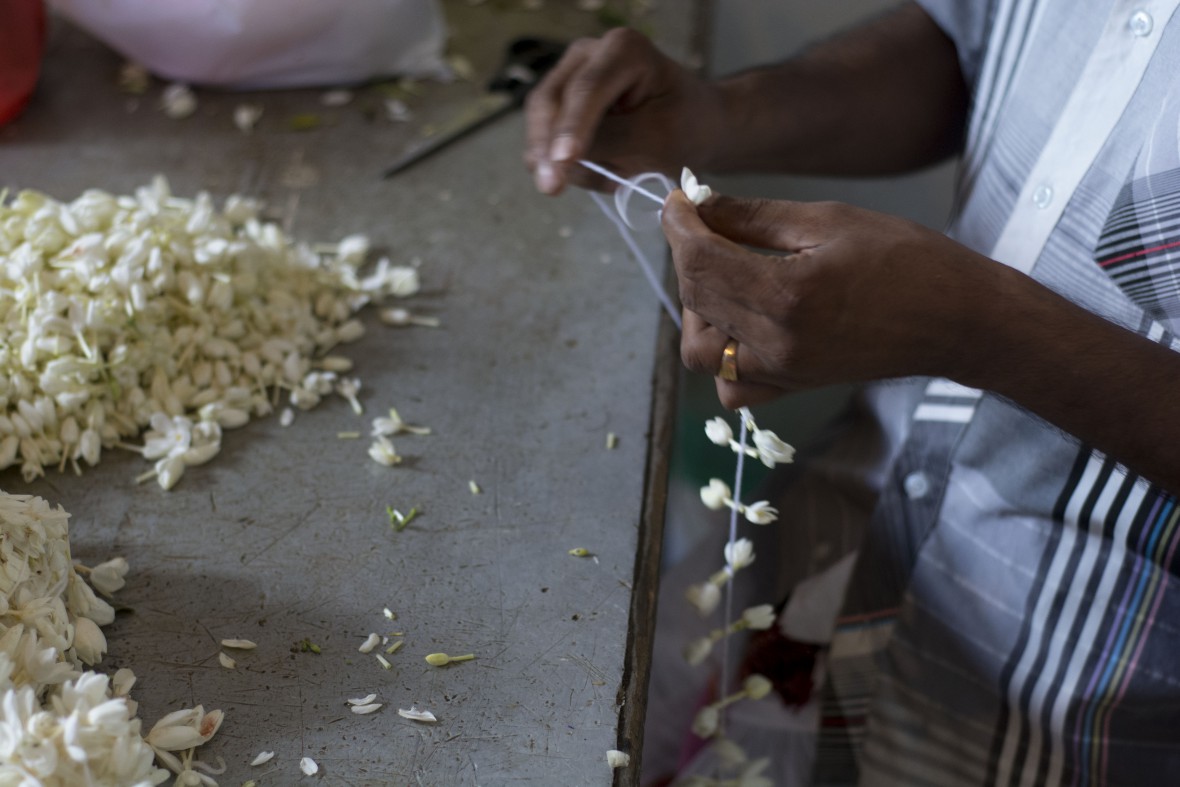
In the upcountry, people celebrate it like a festival, where they enjoy themselves, and consume alcohol and meat. Hindus are not supposed to eat meat but the consensus here is that it’s a day to celebrate. In the hill country, a good 80% of households cook non-vegetarian meals.
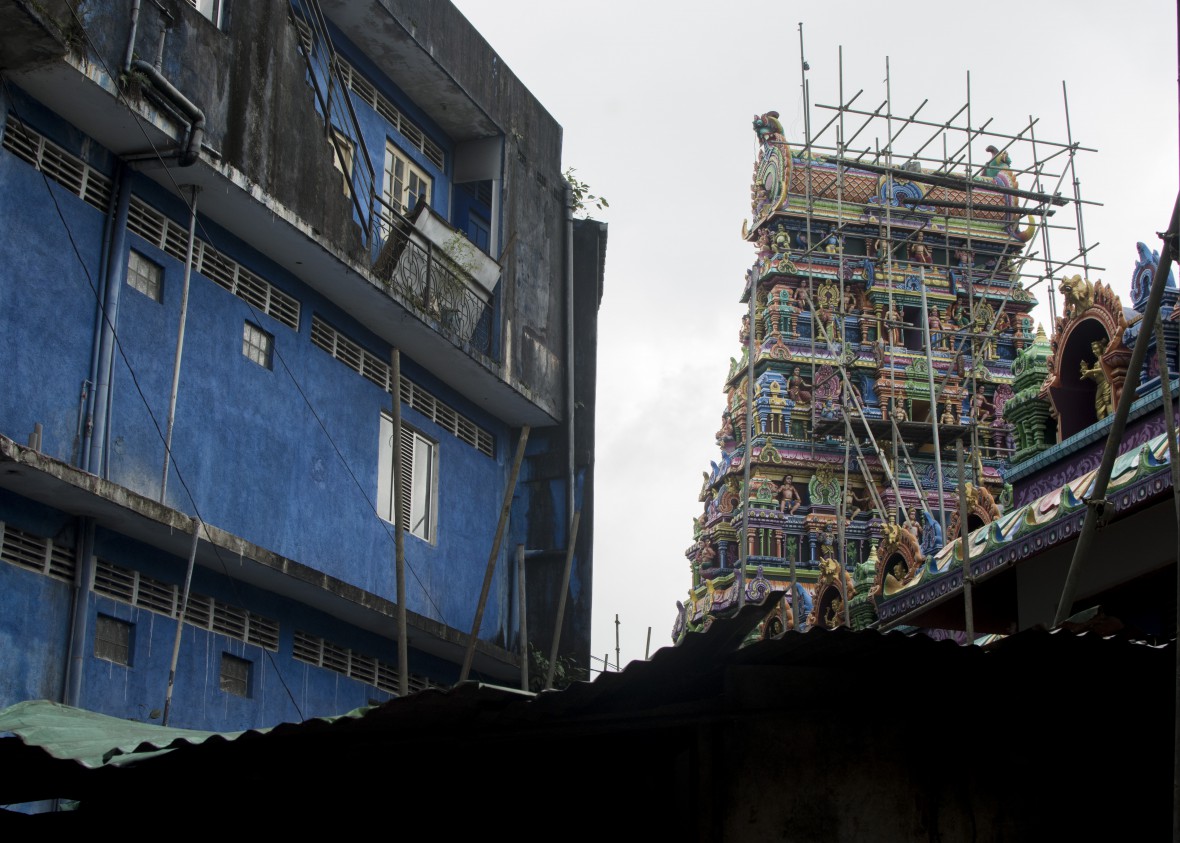
Temples here not that busy. People are not worshipping, they are celebrating.
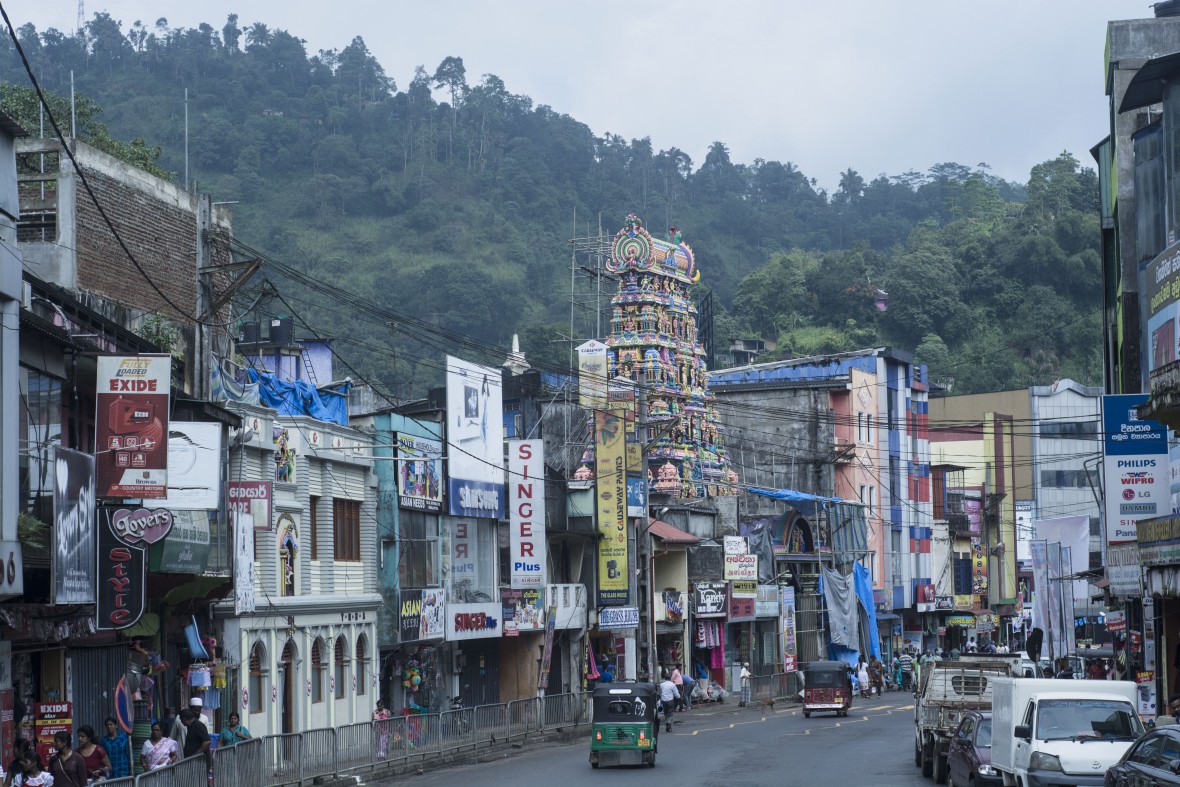
A view of the town
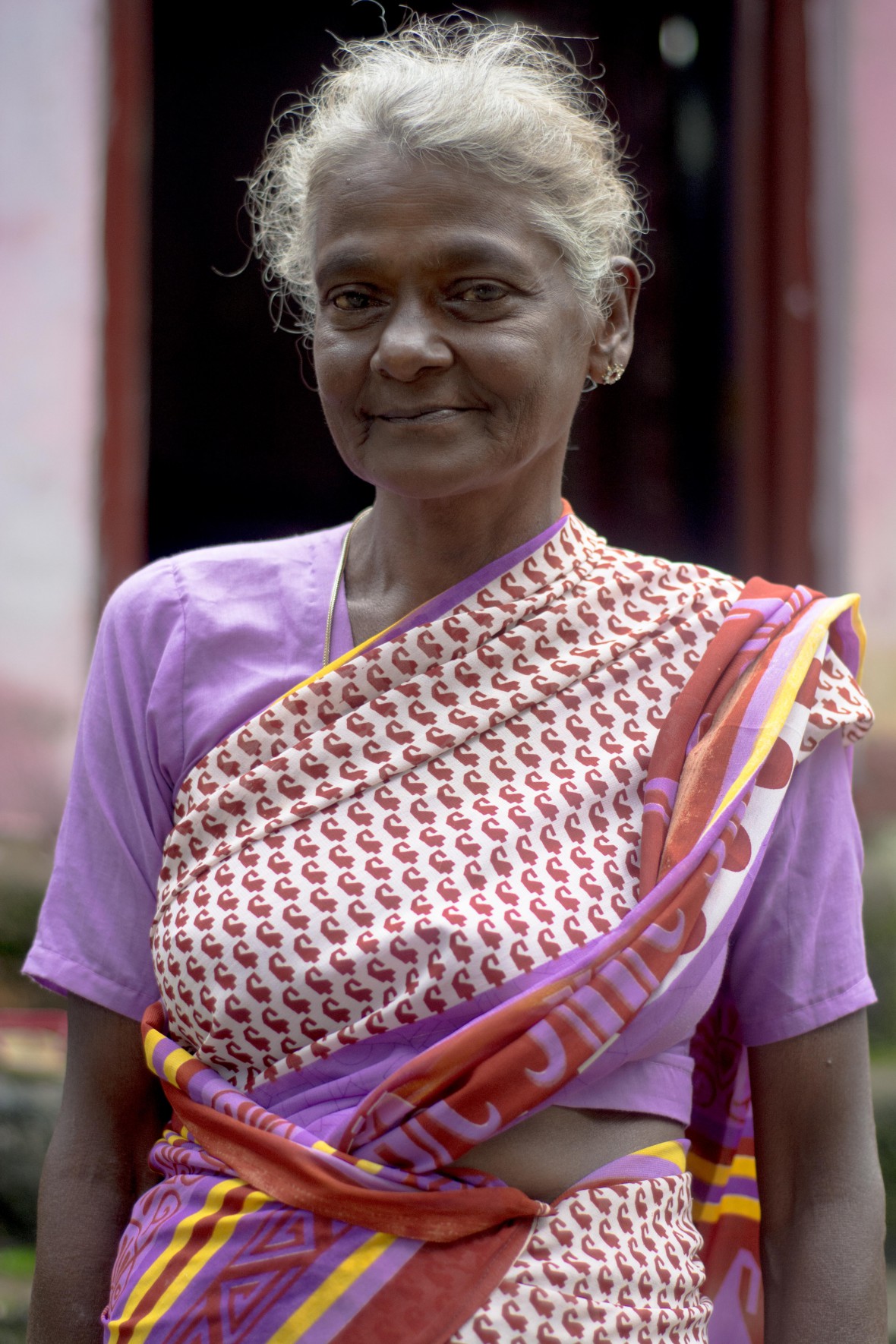
Kandhayie, 62 years old
“In our family, we buy clothes and offer to our parents with sambrani. We have a bath, go to the kovil, and come back home and cook vegetables and chicken curry and sit together and eat. Our relatives come over. No matter how difficult it is for us, we do this.”
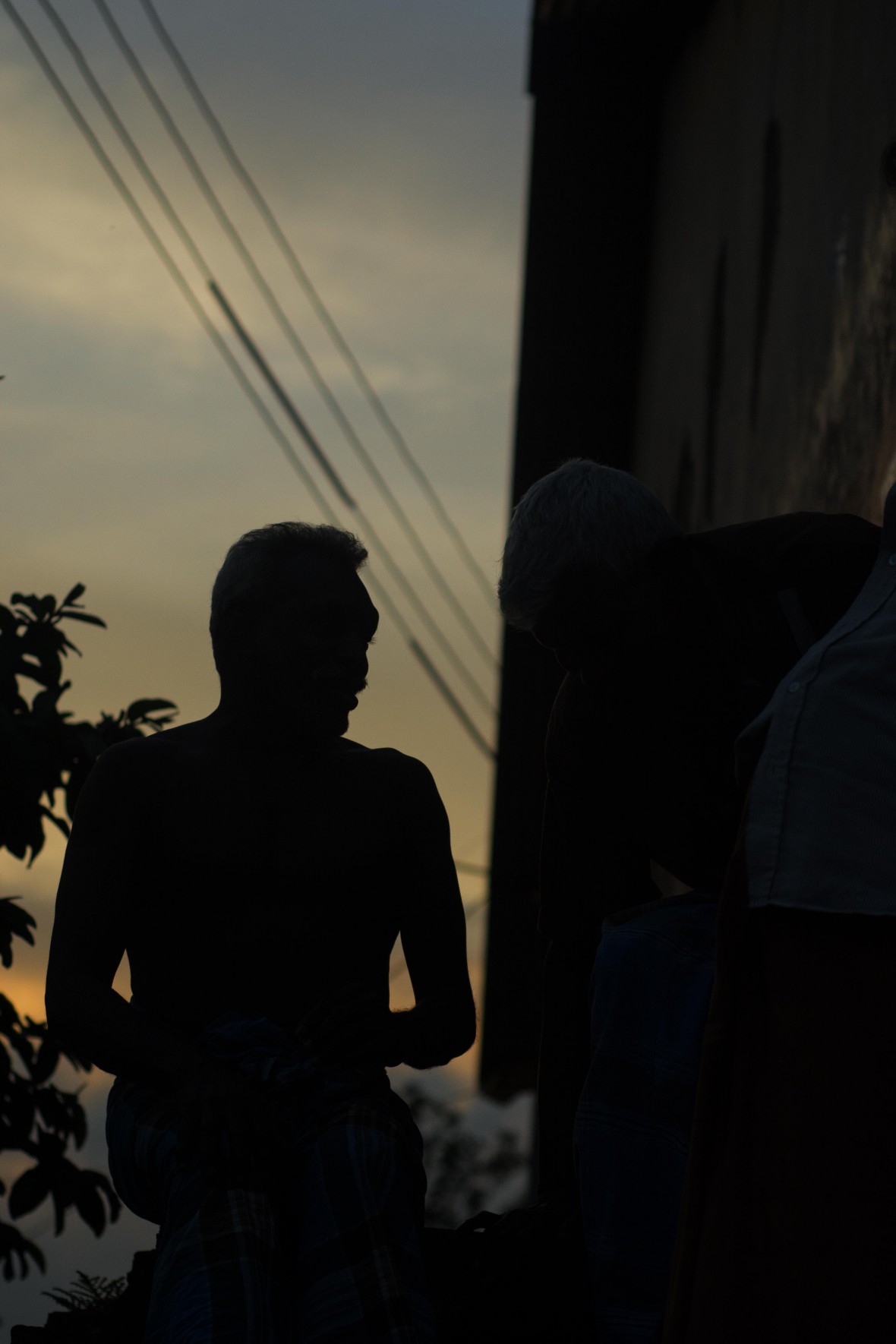
Arumugam 60 & Premadasa 64 years
“How can we celebrate Diwali, [when] everything is so expensive? We can celebrate only if we’re happy. A coconut costs 100 rupees and a kilo of rice costs between 130-150. Diwali is gone with those days.”
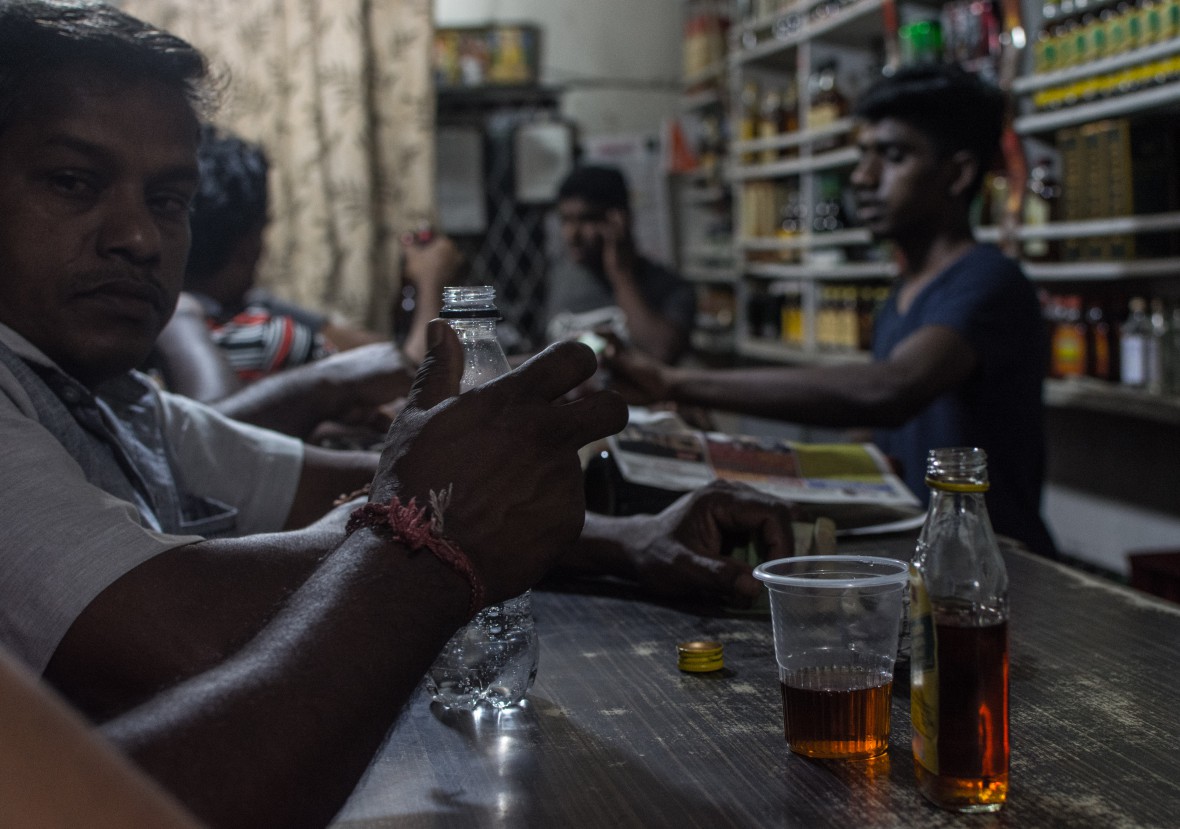
Sri Kanth, the kovil trustee says that many ministers are asking people to forego liquor today and not go to the wine stores. Alcohol was introduced by the British, he says, and hasn’t left since.
